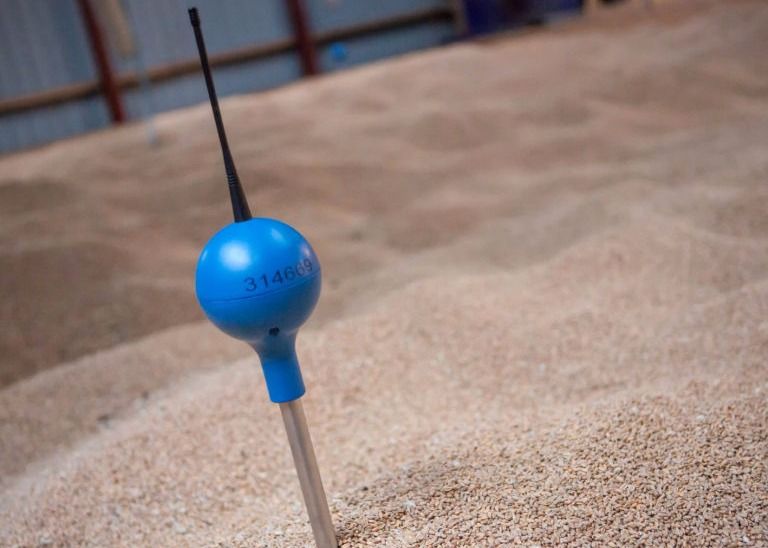US grain storage startup TeleSense has closed a $10.2 million Series B round led by existing investor Finistere Ventures.
New investors in the startup included Fulcrum Global Capital, UPL, Artesian Venture Partners, and Mindset Ventures. Existing shareholders including Rabobank’s Food & Agri Innovation Fund also joined the round.
The startup added former Bunge CEO Soren Wolck Schroder and Mark Palmquist, CEO of United Malt and former CEO of Australia’s GrainCorp, to its board of directors as part of the deal.
“TeleSense is creating a digital global grain supply chain that uses data to combat grain spoilage, making the supply chain more sustainable and saving companies billions of dollars in lost grain along the way,” said Spencer Maughan, co-founder and partner at Finistere Ventures, in a statement.
Based in Sunnyvale, California, TeleSense places sensors inside grain storage bins to provide data on the condition of stored grain, both in real time and for forecasting.
It then automates the detection of any potential issues that might compromise the grain’s integrity. Machine-learning algorithms alert users — typically, large agribusinesses, co-ops, and commodities traders — to help them predict grain quality, reduce human error, ensure safety, improve operational efficiency, and boost profitability.
Among these products is CellularSpear, a wireless temperature and moisture sensor that it claims can be installed in 30 seconds.
Batteries included
The Series B funding will be used to scale these product offerings and meet what TeleSense describes as “a surge in demand.” The startup recently opened offices in Australia and Europe, and now plans to focus on enhancing its global sales presence, according to CEO and co-founder Naeem Zafar.
“We have already tripled the size of our [sales team] in the last six months. We find dealers now who can represent us in more communities. We are adding salespeople in Europe,” he tells AFN.
A portion of the funding will also go toward cost reduction and new product development. The goal is to achieve what Zafar describes as a “cable company model” where users subscribe to the service, with a box of hardware showing up at their door.
“This way, we can lower the barrier for people to try the solution and really expand more globally,” he says.
The startup has faced several challenges brought on by Covid-19; some of the parts it uses in its devices originate in China and it became harder to obtain these as the pandemic took root in the country earlier this year.
Going against the grain
There are many teams using tech to tackle problems in the grain industry. Omaha-based Scoular launched an app earlier this year called Roger that allows grain haulage drivers to scan documents using smartphones, eliminating antiquated paper-based processes.
Texas-based GrainChain — which is deploying blockchain technology in an effort to provide more transparency in the grain industry — raised $5 million from Overstock.com’s Medici Ventures earlier this year.
In March, India’s Arya raised $6 million in pre-Series B funding for its tech-driven solution which helps farmers avoid selling their grain when prices are low.





